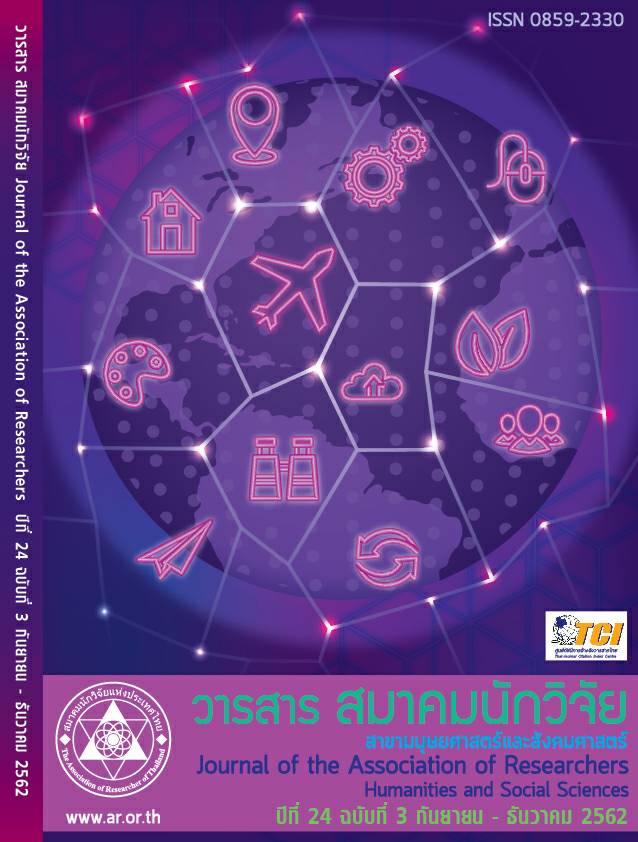The Participatory Social Welfare Provision for Elderly People
Main Article Content
Abstract
The change in the population demography has led many countries including Thailand to an aging society that has caused a wide effect at the macro and micro levels of the economy. As such, preparing society and associated services in line with the aging society is an important agenda for the nation. The objectives of this research were to examine influence of a model of social welfare system for an aging society, organizational roles, and conditions for participation on the participatory social welfare provision for elderly people in Nakhon Pathom Province town municipalities. This research employed a mixed research methodology combining quantitative and qualitative methods. In a quantitative research part, the sample consisted of 380 elderly people above the age of 60 years who lived in four town municipalities of the Nakhon Pathom Province including Sam Phran Town Municipality, Raikhing Town Municipality, Krathum Lom Town Municipality, and Muang Nakhon Pathom Town Municipality. They were selected by multi-stage sampling. The sample size was determined based on 20 times the observed variables. Data were collected with the use of a questionnaire and analyzed with a structural equation model. As for the qualitative research component, in-depth interviews were conducted with 20 key informants including mayors, municipal clerks, chiefs of the public health division, and the presidents of the elderly people club. They were selected by purposive sampling. The data were analyzed with content analysis. Research findings indicated that a model of a social welfare system for the aging society had the overall greatest direct influence on the participatory social welfare provision, followed by conditions for participation whereas organizational roles had no influence on the participatory social welfare provision at all.
Article Details
บทความที่ปรากฏในวารสารนี้ เป็นความรับผิดชอบของผู้เขียน ซึ่งสมาคมนักวิจัยไม่จำเป็นต้องเห็นด้วยเสมอไป การนำเสนอผลงานวิจัยและบทความในวารสารนี้ไปเผยแพร่สามารถกระทำได้ โดยระบุแหล่งอ้างอิงจาก "วารสารสมาคมนักวิจัย"


